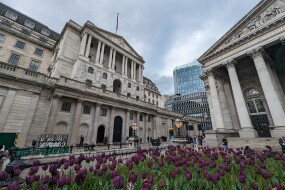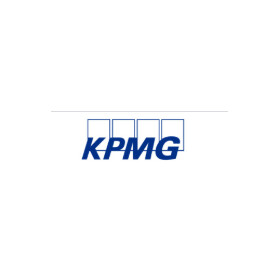In a sign of the strong potential of the UK economy, 468,000 new firms have started up in the first half of 2024, according to the New Startup Index, published by Beauhurst and supported by Royal Bank of Scotland (RBS).
Economy
The UK economy grew by 0.6% in the second quarter of 2024, matching expectations and marking a continued recovery from last year's recession. However, monthly GDP growth was flat in June due to poor weather impacting retail sales. Experts warn that challenges remain for sustaining long-term growth,
Scotland’s economic recovery is gaining momentum, suggesting fertile conditions for growth, but pace remains ‘anaemic’, according to the latest EY ITEM Club Scottish Summer forecast. The latest quarterly GDP data indicates that the Scottish economy grew by 0.5% in the first quarter
UK CPI ticked up to 2.2% in July, driven by energy base effects that outweighed a slowdown in services inflation. Analysts anticipate further gradual increases in inflation through the second half of 2024. Peter Arnold, EY UK chief economist, said: "A smaller drag from the energy category added
Business confidence in Scotland rose eight points during July to 51%, according to the latest Business Barometer from Bank of Scotland. Companies in Scotland reported higher confidence in their own business prospects month-on-month, up one point at 45%. When taken alongside their optimism in the eco
Scotland’s onshore GDP grew by 0.3% in May, following growth of 0.2% in April, according to statistics announced by the Chief Statistician. In the three months to May, GDP is estimated to have grown by 0.9% compared to the previous three month period. This indicates an increase relative to the
UK consumer price index (CPI) inflation held steady at 2% in June, slightly above expectations.
Scotland's economy is projected to grow more in this year compared with last year, with real GVA expected to be 0.9% higher across 2024, according to PwC. The Big Four firm's latest Economic Outlook reveals that, while considered subdued, the rate of growth north of the border is greater t
An independent report has revealed that Scotland's forestry sector brings in £1.1 billion each year to the economy and supports over 34,000 jobs.
The UK's GDP grew 0.4% during May, leading experts to suggest the Bank of England may further delay a cut to the base rate.
Scotland has maintained its position as the second most attractive location for foreign direct investment (FDI) in the UK, after London, securing a record 124 projects in 2023. According to EY’s Scotland Attractiveness Survey, this represents a 12.7% increase from the previous year, significan
Scottish retail sales experienced a significant decline in June 2024, dropping by 3.6% compared to the same period last year.
Scotland's private sector output continued to grow in June, according to the Royal Bank of Scotland Growth Tracker, but at a slower pace compared to May. The headline Business Activity Index, posted above the neutral 50.0 mark, but ticked down to a five-month low of 51.9, from 55.2 in May, reflectin
UK economic growth in Q1 2024 was marginally stronger than initial estimates, revised upwards to 0.7% from 0.6%, according to the Office for National Statistics. National accounts for the first quarter showed the rise was fuelled by consumer spending and net trade, though slightly offset by weaker b
Scotland's economic growth came to a halt in April 2024, with onshore GDP remaining flat at 0%, according to the chief statistician.















